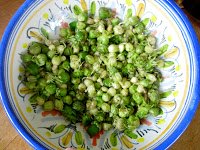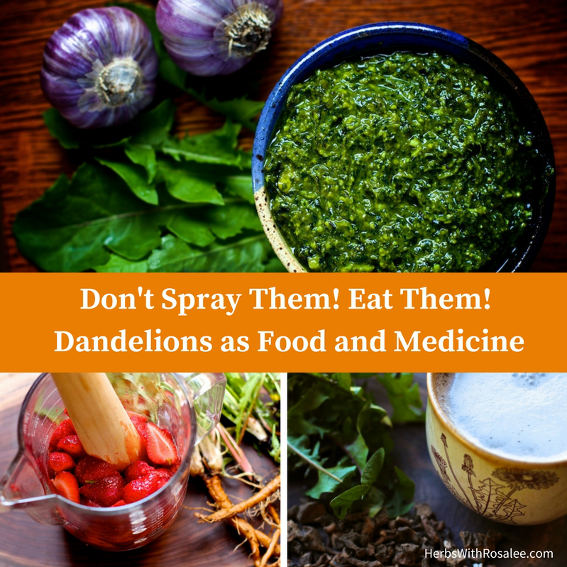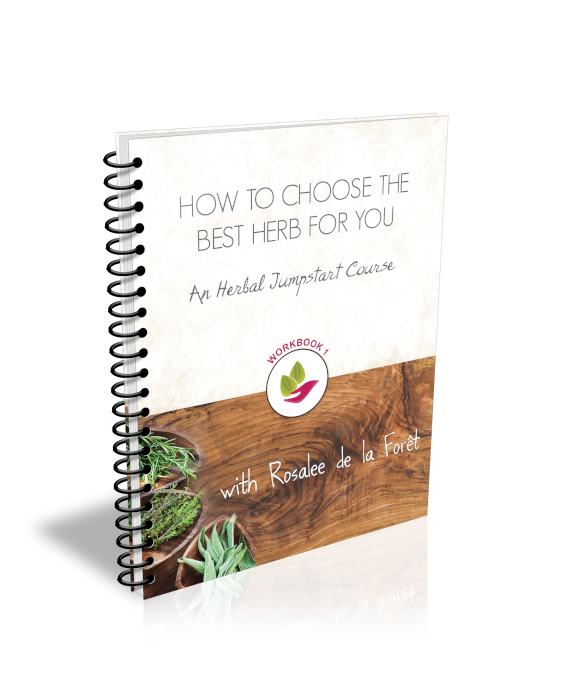Get weekly tips, recipes, and my Herbal Jumpstart e-course! Sign up for free today.

Dandelion as Food
Share this! |
|
Volumes could be written on the many uses of dandelion as food and medicine– indeed they have been! This common weed is often hated and poisoned by those preferring a “weed free” lawn, while those of us in love with dandelion and its many uses happily support it taking over our lawns.
This plant was purposefully brought to North America by Europeans not wanting to leave this valuable resource behind. Every part of the dandelion can be used as food or medicine, making backdoor herbalism simple and easy, as it should be.
When the first spring leaves pop up out of the ground they can be harvested heavily and eaten fresh with salads, made into a delicious pesto, or dried for tea.
Dandelion leaves are highly nutritious, containing large amounts of vitamin A, calcium, potassium, and many more vitamins and minerals. The French call this plant pissenlit, which alludes to its strong diuretic properties. A tea of dandelion leaves is a great way to flush excess water from the system. (Of course, before using this effective remedy we always want to make sure the water retention is caused by a non-serious condition like sitting on an airplane too long.) Like burdock, dandelion’s strong diuretic activity makes it an inappropriate choice for someone with low blood pressure or excessive urination.
When eaten with meals,
the bitter taste of the leaves helps to promote digestion by
stimulating bile to relieve indigestion and other digestive
disturbances.
Dandelion root is a great ally for the liver. It can be tinctured or eaten fresh in a variety of recipes. Dandelion root can help clear up acne and other skin disruptions with the root cause being a stagnant liver. Most herbalists agree that long-term use of dandelion is needed for best results.
The flower can be eaten in salads, or fried up as fritters. An oil made from dandelion flowers is warming and can be applied externally to relieve arthritis and other aches and pains.
Lastly, the latex, or sap, from the dandelion stems can be used topically on warts. Apply several times daily for best results.
My favorite way to enjoy dandelion is by making dandelion “coffee” with the roots. This beverage doesn’t contain the caffeine found in coffee, but does have a rich, dark taste similar to coffee.
Dandelion as Food - "Coffee" Recipe
Prior to decocting the dandelion root, roast the dried chopped root in a cast iron pan until it is fragrant and has changed color from being off-white to light and dark brown.
For each 8 oz of water you are making, use 1-2 teaspoons of the roasted root.
Add the root to simmering water and continue to simmer while covered for 7–15 minutes. The resulting brew will be darkly colored. I enjoy my dandelion coffee with cream, and many people enjoy adding honey as well.
Dandelion as Food - Pesto Recipe
We love this pesto as a dip, on bread, pasta, salmon or even a couple tablespoons on eggs.
Ingredients
- 2-4 crushed cloves of garlic
- 1/2 cup cold pressed olive oil
- 2-3 cups of young dandelion leaves
- 1/4 cup of freshly grated parmesan cheese
- dash of sea salt
- squirt of lemon juice (optional)
- 1/4 cup of ground nuts (walnuts, pine nuts)
I prefer to make this type of mixture in a food processor. If you have one of these handy devices simply place all the ingredients in the processor and blend until well mixed together.
If you do not have a food processor you can make this in a blender and since I have burned out many a blender doing this, here are my very precise instructions on how to make dandelion pesto not break your blender in the process.
Place oil, garlic and salt in the blender along with half of the dandelion leaves.
Blend well and then add the other half of the leaves. When finished blending it should be of a good consistency although still a little runny.
Pour into a bowl and add desired amount of parmesan cheese, ground nuts and lemon juice.
Dandelion as Food - Marinated Dandelion Flower Buds Recipe
One of my favorite ways to harvest dandelions are in fallow fields. The soil here is usually tilled well so the harvesting is easy. When I am able to find these areas I often harvest the entire plant. Returning home I separate the leaves from the roots, the flowers from the stems and reserve those tight light flower buds for the following recipe. Be sure to use the flower buds when they are still tightly closed and before they have ever opened.
Ingredients
- 1/2 cup onions
- 3 tablespoons fresh minced ginger
- 4-5 garlic cloves
- 1 cup dandelion flower buds
- apple cider vinegar
- tamari or soy sauce

Rinse the flower buds well and place into a pint jar with the onions, garlic and ginger.
Fill halfway with the apple cider vinegar and then halfway with the tamari or soy sauce.
Cover with a plastic lid or a metal lid with a plastic buffer. (Vinegar will corrode the metal lid.)
Let sit for three weeks in the fridge and then enjoy on salads, as a snack and on tuna fish sandwiches.
These will keep indefinitely in the fridge.
Other Dandelion Recipes on LearningHerbs
- Another Roasted Root Recipe
- Fry up the flowers for some wild food treats
- Tangy and Delicious: A Dandelion Strawberry Shrub
- For something a bit different: Fermented Dandelion Stems

Rosalee is an herbalist and author of the bestselling book Alchemy of Herbs: Transform Everyday Ingredients Into Foods & Remedies That Healand co-author of the bestselling book Wild Remedies: How to Forage Healing Foods and Craft Your Own Herbal Medicine. She's a registered herbalist with the American Herbalist Guild and has taught thousands of students through her online courses. Read about how Rosalee went from having a terminal illness to being a bestselling author in her full story here.


